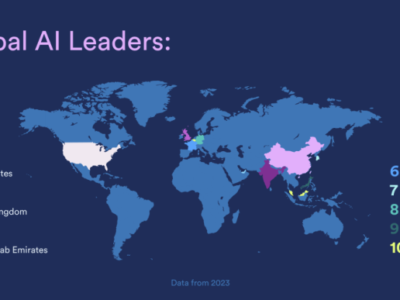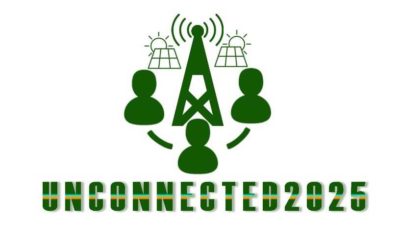Social media + Advertising
….The changing face of advertisement
By MARTIN EKPEKE
So you want to unload 10 million pairs of shoes to the youth segment of the population; and you probably want to tell 20 million Nigerians that there is a new drug to tame arthritis? If you are only thinking of putting your advertisement online, you are not being imprudent.
Take it or leave it; advertisers are shifting increasing amounts of their advertising budgets from traditional media to various forms of online platforms. This wasn’t the trend about ten years ago. In recent years, the opportunities to showcase brands online have expanded to include video sites such as YouTube.com and social networking sites that include Facebook, MySpace and Twitter.
And as the transition is taking place, advertisers are left wondering what effect these new, more voluntary and less controlled brand interactions are having on the consumer behavior. These latest forms of online brand communications have created a new arena for advertisers to connect more intimately with their target audiences.
The very smart advertisers are not ready to pay advertising fees to get their products and services to their target market. What they normally do these days is post information on the interactive session of popular newspapers and blogs, or just hang those information and sometimes pictures of the product on the Twitter handle or Facebook page of very popular people and then the product goes viral. Web based platforms have also been seen by these folks as a means to acquire intelligence that informs their decision making processes.
Even though some people still argue that they will still pitch their tent with the traditional media because of its conservative nature, several reports have indicated that digital platforms like web, mobile, and social media currently have the highest efficacy among marketing channels in terms of overall, weighted value. This is especially true compared to more ‘traditional’ channels such as radio and printed materials. In fact, the weighted values attributed to these channels have experienced dramatic decreases even in the last one year.
Some advertisers are already rethinking their strategies on how to push product and service awareness among an increasingly digitally enabled population. One advertising agency in Lagos is already inking a final agreement of promoting its clients’ products through the Twitter handle of pop stars with large followers. “Some artists have over a million followers and about half of the figure is active meaning a product splashed across the Twitter page of such stars should achieve better results 10 times over what any of the widely circulated mainstream print or electronic media could deliver. It is a new age. You need new and trendy strategies to reach the market,” said Lagos based market analyst, Tunji Oladare.
For Mr. Ota Ogefere, the Managing Director of Dbrig Communications, a Lagos based advertising and marketing communications company, social media has made appreciable impact in advertising and every right thinking advertiser must consider it. But he is not carried away that social media will replace the traditional media. His position is hanged on access to internet which many people especially in the rural areas do not have.
“To me the web is certainly changing the culture of the advertising industry but people will still need the traditional media of radio, television and newspapers because print is something Nigerians will pick, read and assimilate. You can use web to create a mass awareness but you cannot rely on it because how many people will act?” he asked.
While Ota still feel that traditional media should not be ignored with the wave of the hand because of its conservative nature, Mr. Obinna Okeke, Managing Director of Wow Effect Communication, Nigerian internet marketing company is of the view that any newspaper that continues to operate in the traditional way will sooner than later die. He advises newspapers to pay for eyeball. To him, if the eyeball is not there, then there won’t be any basis to advertise in such newspaper.
“The success or otherwise of most businesses will be determined by their online marketing effectiveness,” Mr. Okeke cited Wall Street Journal’s report that the paradigm shift is already influencing the marketing resource allocation of tech savvy companies. A case to point out is Procter & Gamble, the world’s biggest advertiser that is shifting its marketing dollars online. According to Wall Street Journal, Procter & Gamble will spend 35% of total marketing budget online this year. “The future of advertising is digital,” he affirmed.
As Russell Southwood, technology analyst at Smart Monkey TV rightly notes: “Africa’s Internet and social media is attracting increasing amounts of digital advertising and sponsorship spend. Current levels of digital advertising spend outside South Africa are very low. Although there are no reliable figures, it is probably below 5 percent even in more developed markets like Kenya and Nigeria. [Two brands] Guinness and Airtel are the outliers and are spending what I would guess is between 5-10 percent of their budget on digital.”
Social media endorsements are exactly that kind of service that provides benefits that current or traditional advertising options cannot give. Besides being affordable or totally free in most cases, social media advertising may benefit a brand more than a traditional advertisement. A rundown of some of the advantage of the web/social media confirmed it:
More than ever, people are using Twitter, Facebook and other social media sources in order to socialize, find and share news and information. As of June 2013, there were over one billion monthly active users on Facebook, over 500 million tweets per day and about 8.6 trillion SMS text messages sent a year. This is changing everything-the way people interact, learn, live and get entertained. This is the social media generation, no doubt.
Usually, social media advert campaigns are centered on efforts to create content that attracts attention and encourages readers to share it with their social networks. A corporate message spreads from user to user and presumably resonates because people see it as coming from a trusted, third-party source, as opposed to when the message is coming from the company itself.
Why won’t the average advertiser leverage on social media platforms? It allows people to interact with a wide range of people they may not normally be able to meet. With social media, sharing is caring and referring a product is a simple click away. The advice is; brands looking to target and reach today’s tech savvy, modern society should give preference to social media endorsements.
Social media endorsements allow brands to effectively target and reach consumers based on the consumers’ tastes and preferences. Often times people like or follow their favorite brands on social media outlets. When this happens, it bundles together a group of people who share the same tastes, interests and preferences. This allows brands to easily identify, target and influence consumers who are likely to buy their brand.
Studies have shown that people who follow their favorite celebrities on social media are 55 percent more likely to purchase a brand if such celebrity mentions it on Facebook or Twitter. “why won’t I purchase a product endorsed by somebody like Don Jazzy, I love him, he is a my role model,” Taiwo Oni, a University undergraduate respond to question on what influence his buying decision on products he sees on social media platform. Social media provides meaningful, measurable and action-oriented results.
Many of the marketing best practices of the past are directly at-odds with today’s practices. The dynamics have changed, technology is taking over everything. Social media and digital engagement are the industry’s greatest assets; organizations are keying into the explosive growth of social media to expand their services and capture new customers. Banks are not left out on this trend, one of the Nigeria’s leading banks; GTBank has unveiled Facebook Banking, inspired by the huge number of social media users.
Brian Solis, a principal at Altimeter, a research firm focused on disruptive technology once predicted in his report titled ‘The decline of traditional advertising and the rise of social media’ dollars that are moving away from traditional advertising are now allocated towards “un” marketing activities that will earn stature, credibility and ultimately empower a more confident group of influential advocates through investments in innovation, research, customer service, customer experiences, marketing-specific technology and IT staff.
Brian’s prediction was strengthened when US based Forrester Research released its five forecast on interactive marketing spending from 2009-2014. Forrester predicts social media spending will increase to $3,113 (in millions) in 2014 from $716 in 2009 representing a compound annual growth rate of 34%.
What this means is that overall advertising traditional media had continued to decline in favor of less expensive, more effective interactive tools and services. This cannibalization of traditional media will bring about a decline in overall advertising budgets, death to obsolete advert agencies, publishing awakening and a new identity for search engine like Google and Yahoo. Google is today the leading force in new age advertisement – so much for a company that only started off as an internet search engine but today is the world’s playmaker in advertisement.
Another thing that is working against the traditional advertising is portability and mobility. Customers want to have their content on the go or have multiple areas where they can learn more about product, services and wares. If everything is thrown into the press release or advertisement in the Punch and Guardian, what information is shared and how can this be spread virally?
People’s media consumption habit is changing and any paper that fails to evolve with the time will eventually find its revenue dried up. The near bankruptcy of the iconic Washington Post Newspaper earlier this month puts the whole argument into proper perspective but for the intervention of Jeff Bezos, an American internet entrepreneur and investor.
Why won’t web marketing override the traditional media? Every aspect of digital marketing can be tracked, measure and optimize–with hard data! This is different from what obtains in the traditional advertising where a lot of ‘guestimation’ is involved. In fact, the relative measurable advantages of digital advertising over traditional advertising are derived from the data driven nature of digital advertising.
Conclusively, while the attraction to newer communications vehicles is evident, traditional advertising is still more effective at attracting a broader spectrum of those who are not already strongly attached to brands. Taking into consideration the distinct roles of both traditional and branded social media, advertisers should work to develop a cohesive strategic platform to execute across all media. While the advertising budgets by brands largely still favour traditional advertisements, it is merely a matter of time before the budgets for digital advertisements widen and shrink for mortar and brick advertisements.
‘Social media endorsements allow brands to effectively target and reach consumers based on the consumers’ tastes and preferences. Often times people like or follow their favorite brands on social media outlets.





























